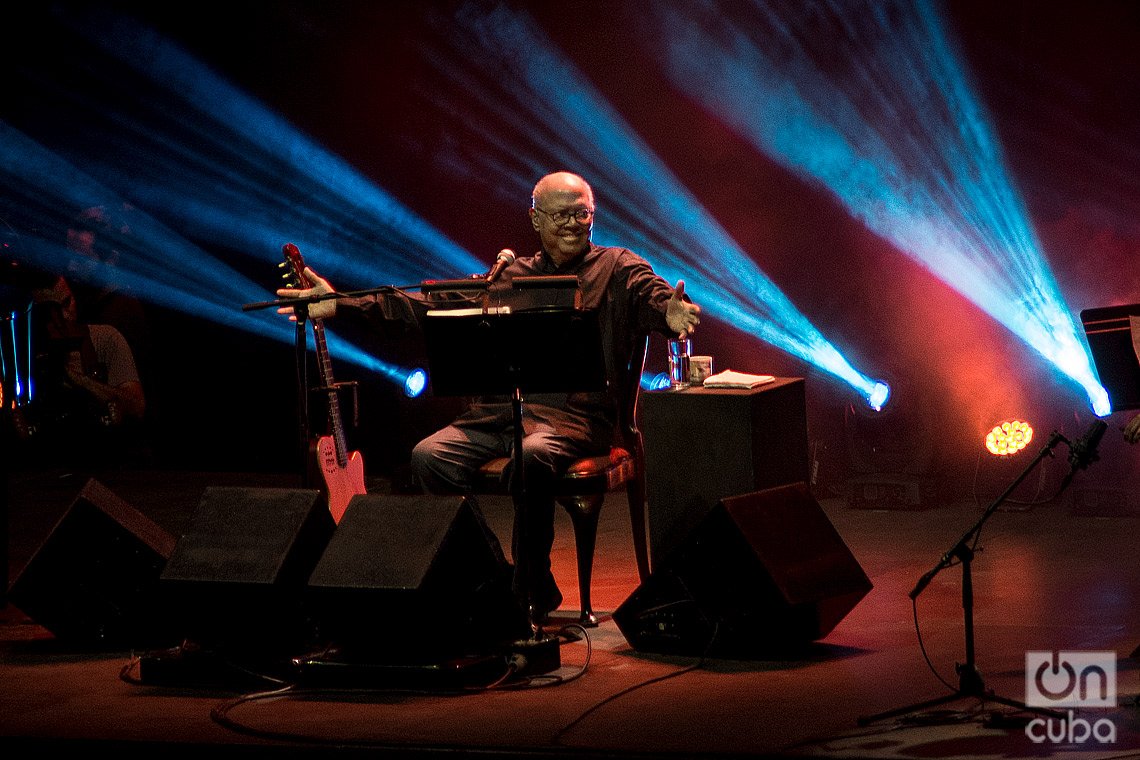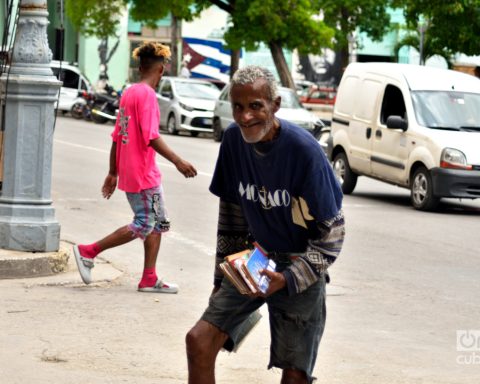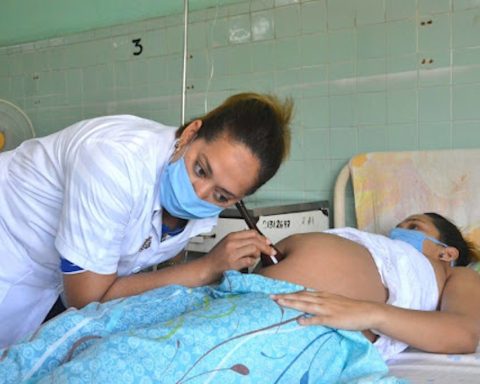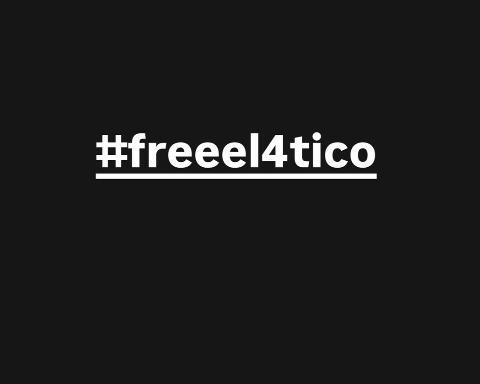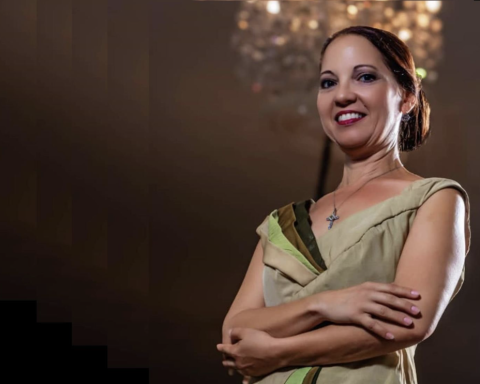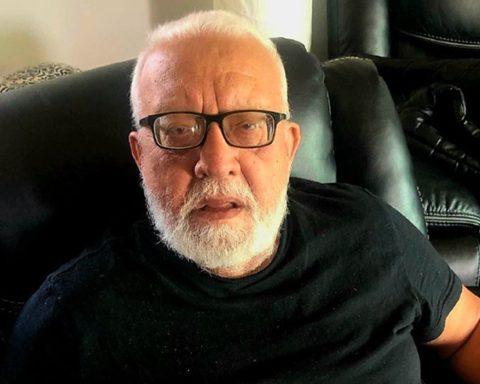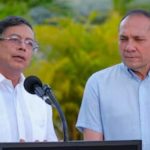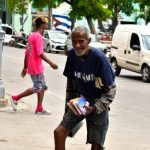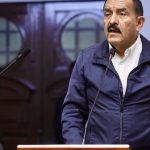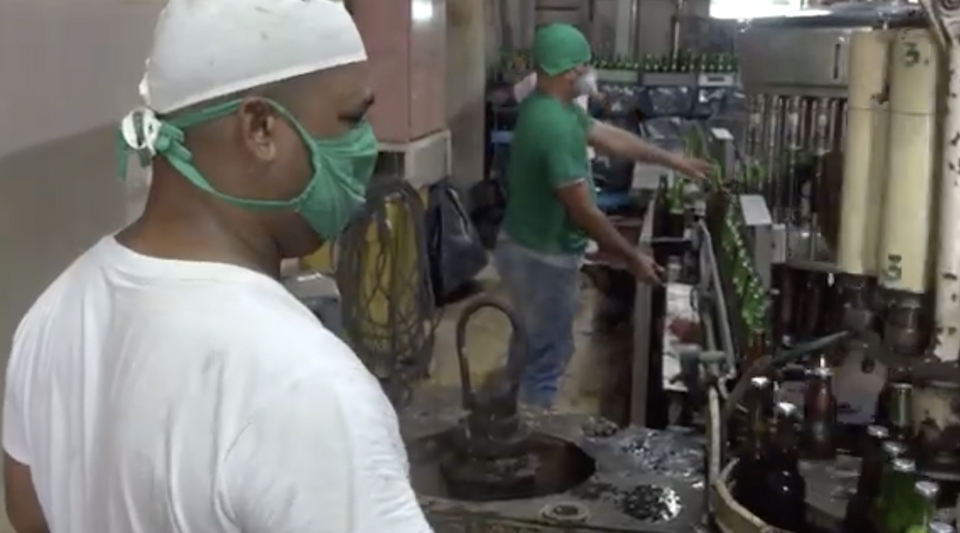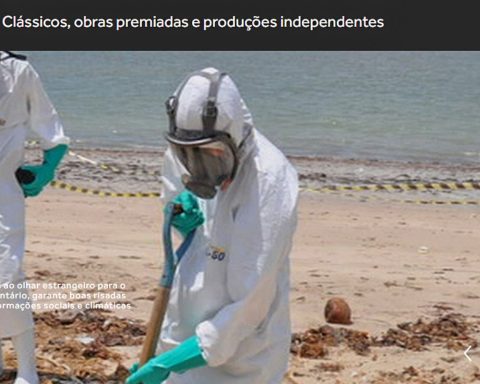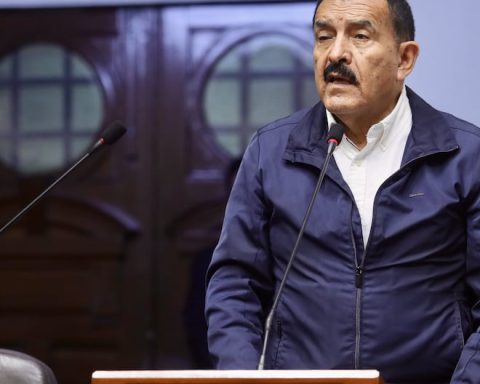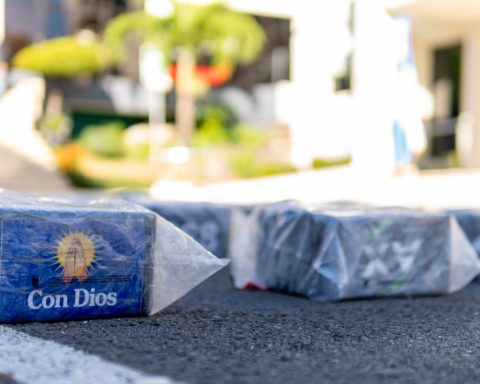Pablo Milanés rehearses with his musicians at the Ciudad Deportiva Coliseum. Miguel Núñez, at the piano, and the cellist Caridad Varona, together with the troubadour, interpret the themes of the night’s repertoire as a mere matter of procedure. Some of those who listened to the “entertainment” agreed that it looked like a record. “It’s like I’m listening to my parents’ tape recorder,” says a girl on the team.
A few hours later, Pablo returned to demonstrate that the only thing that has happened is time, the country and the different eras that he has narrated with surgical precision. Decades have passed, yes, but that voice on which a country rests has not suffered fractures or worn out despite the incredible concert schedule held by the troubadour, especially in Europe.
Pablo in the distance treats his followers with the same affection as always. He tells the Cubans that they are his best audience and begins to review those songs that are mostly long-standing, that have been in the troubadour’s throat for many years but that have already been shown to have been born to be prophetic. Pablo sang and demolished the turbulence, the insomnia, the simplistic criticism, the monotonous speeches, the publications that came to prosecute the decision to give him a space in his country so that he could meet again with his legion of followers. And he did it above all with a volley of love that prevailed as common sense prevails on the night of the Colosseum.
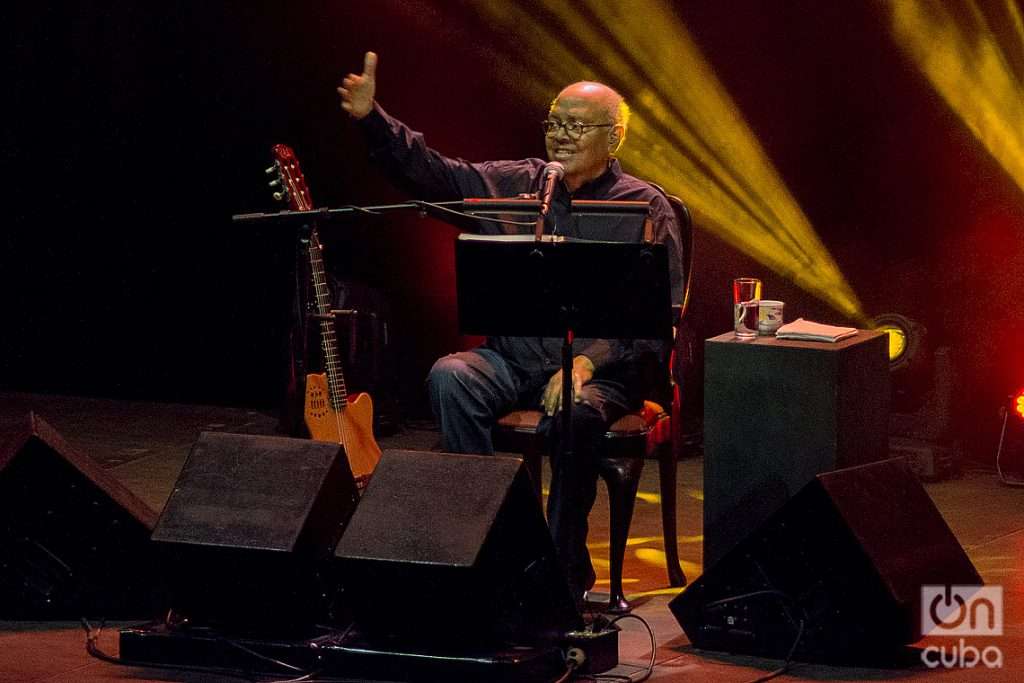
“Beginning and end of a green morning”, “The evils of silence”, “If she ever missed me”, “In what a quiet way” began a repertoire that anticipated that the night could show all the Pablos. Their songs continue to shine with the lights of a distant day, but Cubans renew them, re-contextualize them, incorporate them back into their lives because they know that there are many of the keys to their reality.
The public showed that the troubadour is one of the most beloved and untouchable musicians. A girl shouted “Pablo I love you” and Pablo lowers his head recognizing that this cry is born from the most unbreakable source of spontaneity. The troubadour thanks him and begins to joke with Miguelito Núñez. “Just by moving a hand I already know what he thinks”, says the troubadour since his reign in the Colosseum. The 35 years they have been together endow them with absolute complicity. He then introduces his cellist, Cary Rojas, who smiles and appreciates the privilege. The trio format is a gem. The fellowship is awesome. Pablo must have put together this outfit because some of the musicians in his band are gone and also because the troubadour is a man who cannot escape experimentation with new styles and formats. He did it decades ago and still does. There are, for example, his jazz albums and others in which he has delved into rock with the greatest naturalness in the world.
In the Colosseum there will be about 10,000 people. The majority, with the musician’s songs on their lips, confirm that they are historical followers of the troubadour. Others remain silent or wave their hands in the air surprised by one of those beautiful melodies by Miguel Núñez. No one can take their eyes off the troubadour. The first tensions dissipate and Pablo drinks a glass of water to continue with his light days. Each song shatters conservatism and brings out that the musician is moved by the reunion, by the need to sing to his audience that has not stopped admiring him even in the bloodiest times. The songs speak of the past and also of the evolution of the troubadour. Of his new views on Cuba and his interpretations of reality. It is not very easy to be Pablo when he sings “Exodus”. Melancholy, pain and nostalgia are too heavy a burden. The troubadour has found his own weapons to face the emptiness of absence, drawing inspiration from those memories that many of us have saved and that go out for a walk from time to time like old ghosts.
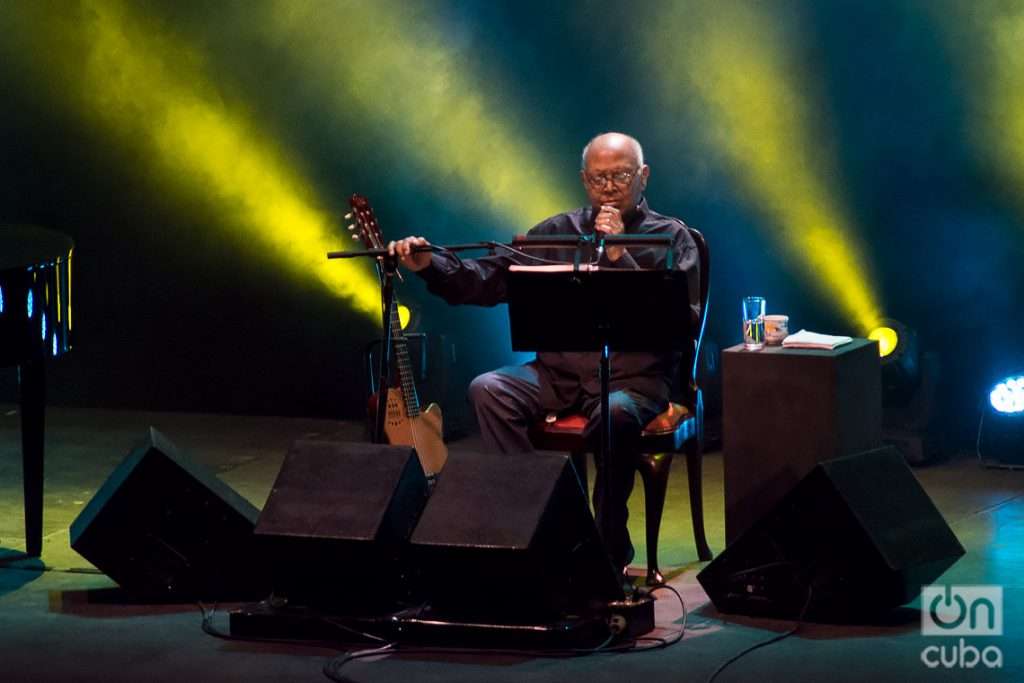
Paul mentions friends who are no longer around. Beside me, a girl who has not passed the age of 30 cries. She puts her hands over her eyes to hide from herself until she notices that this wound is shared by other young people just like her and other people who do not hide to thank this autobiographical theme that can be the story of any of us, that teaches that history is also that spiral that never ends.
“Where are the friends I had yesterday?
What happened to you?
What happened?
Where did they go?
I am so sad.”
Pablo mentions by name Pepe, Juan, Vladimir, Tomas, Hildita the orchestra director. He wonders where they are, what has become of them, and other names come to mind. The absence is part of that national pain that Pablo has narrated with a visceral poetry. With a love that he still allows him to toast to those who are absent and that above all allows him to return to Cuba.
Paul announces two themes to the audience. He says that he wrote them when he realized what the future of our country could be. “Nostalgias” and “Días de Gloria”, those essential sound documents in his repertoire, are heard in the Coliseum and the public gives in deafening cheers and applause. The public is always moved when Pablo alludes with his songs to the history and reality of the country. It has always happened and it has happened again in the Havana night. Hence, each one interprets Pablo according to his life lines and that always incomplete biography that we build piecemeal along the way.
Pablo on stage looks like a man with songs full of words that seem like an open wound, a man who has found in music the only way to save himself from men. Some people who hear him sing for the first time might think that it is a script that, after interpreting it so much, only assumes it as a formality. But when one listens to Pablo sing, he perceives that behind each song there is a musician who sings to cure himself of time, even though the result of the operation only denotes beauty and, above all, love. But in Pablo beauty and love are also born from that inhospitable area where personal wars are won that very few of us dare to show. His songs are simply an exercise in sincerity.
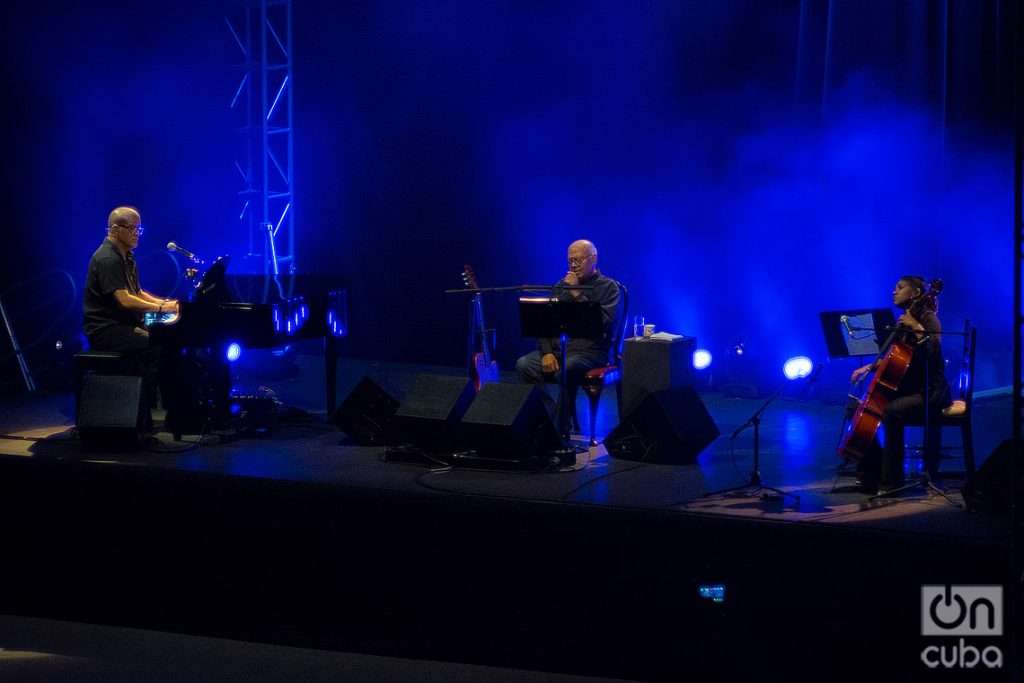
A girl looks at the clock. It marks 10:20 pm and the musician has already performed several of his great classics that he prepared for the occasion. He gives his boyfriend a resounding kiss that is applauded by two older ladies from the seats in the back row. Coincidentally, the boy is a drummer for a rock group and recognizes what was at stake that night.
Pablo from afar seems like a wise father. A dim light illuminates him as two giant screens on either side of the stage return him with a smile that he shares with his pianist and his cellist. Someone again compares the sound with a record.

Pablo sings “La Soledad” and “It hasn’t been easy”. And Pablo stops being Pablo to become the illusion, in that voice that he warned from a past that he has not stopped peeking into Cuban life. “It has not been easy to have an opinion that asserts my vocation, my freedom to choose…” thousands of people sing in the stands to accompany the troubadour in one of his hymns. It is impossible not to return to the years of the song. It doesn’t matter that some of us only had a few years in the body because over time we discovered the song, the essential reason not only for the musician’s work but also for Cuban history.
“The original sin”, “That age is already gone”, “You see” were other songs that the troubadour reviewed to teach again to love Cuba not as a physical territory but as a spiritual space.
Pablo’s concert was truly historic. It is true that it was not the best setting, that the distance between the musician and his audience was too great, that it was not easy to reach that moment, but its relevance lay, among other root issues, in that it was a beautiful exercise in that could be the future of Cuba. Very diverse people, with different visions of what the country could be, came together to sing to the troubadour while the humble musician only managed to say thank you, to return the admiration of the people with his songs. They simply came together to sing to Cuba.
And among that diversity was also the public that has followed Pablo for decades. Women who today are around 60, 70 or 80 years old who went to see him not as a legendary musician but simply as a familiar figure. Words and respect showed it. When Pablo finished one of his songs, the most varied anecdotes about the troubadour were heard, perhaps the product of his excessive imagination or perhaps from his own life. A few meters from my seat, the sister of the deceased rumbero Guillermo Amores remembered when a relative of hers would bring jars of jam to the troubadour when he lived in some area of Nuevo Vedado. Another remembered him as a young man with a sly smile. It was life certainly expressed in the greatest beauty of him.
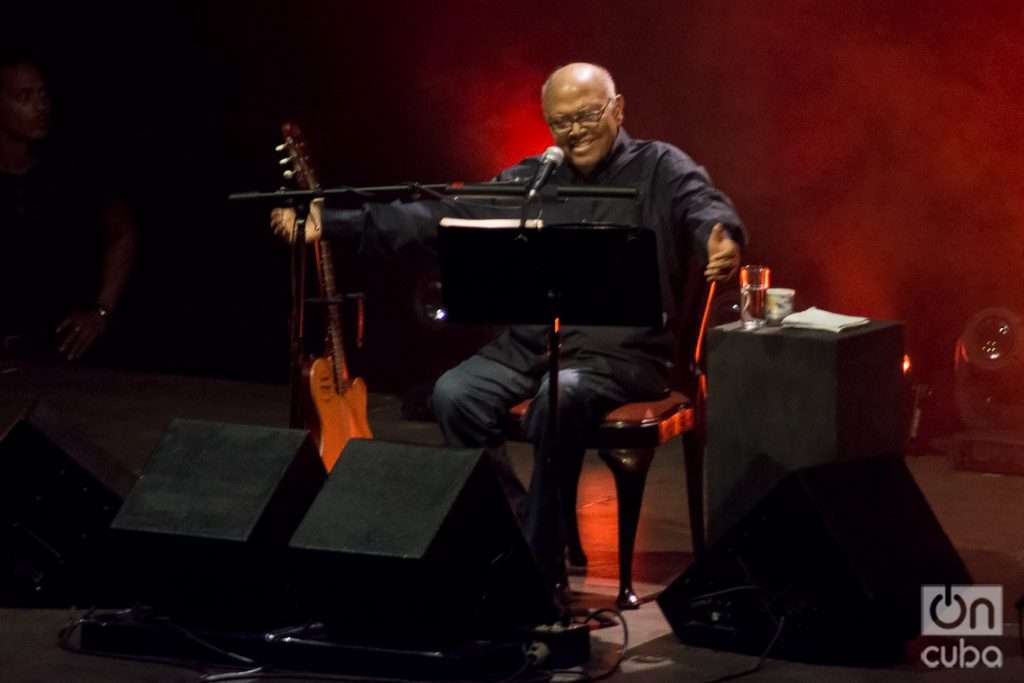
Pablo has overcome the repertoire of his return. It’s almost 10:40 and the troubadour slowly announces his farewell. They arrive “To live”, “Yolanda”, “The brief space in which you are not”. It seems like the end but it may just be the beginning, the rebirth, the recognition among all that this concert will perhaps be a sample of the future. That has Pablo’s songs. Melancholy, love, lack of love, the pact with nostalgia are the expressive matter of his songs, but they are, above all, a scenario of freedom, of observance towards what we are and of the solidity of that recognition between the expectations of Cubans who achieves, like few others, Pablo’s songs.
The musician says goodbye with the certainty that the last gesture cannot be real. With the certainty that a majority of the attendees will demand his return. The cries of “Pablo” and the requests for another song flood the Coliseum. And the troubadour returns with a love song. “Love me as I am” demands the musician as if it were somehow necessary. Because once again the public has returned to endow their songs with new meanings that have once again gained enormous validity despite their age. Does not matter the time. The public has returned to give the musician all the love of him as he is. Neither less bad nor less good.
Some at the exit have once again asked Pablo to come back. No one knows if it will be possible, but they do recognize that the troubadour with his songs has been able to decipher the Cuban reality and that just by listening to him we can be the country that each one of us wants to be in his songs.
